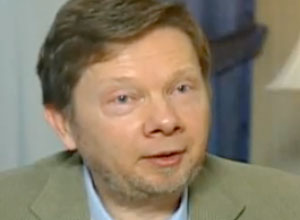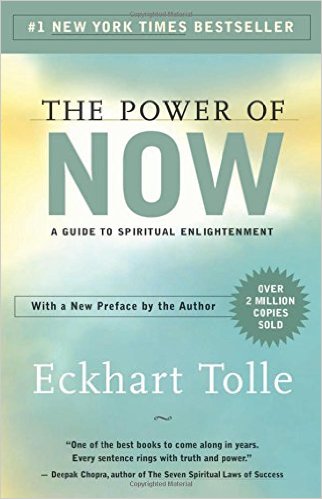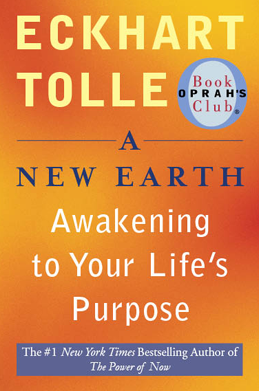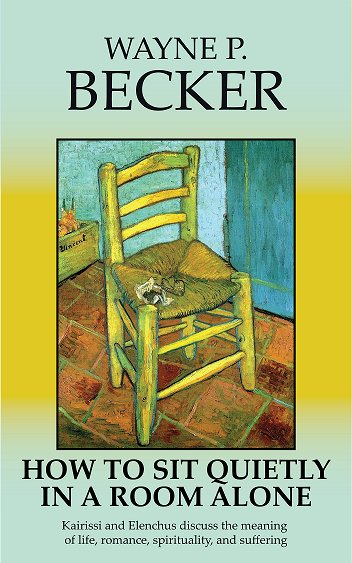|
home | what's new | other sites | contact | about |
||||||||
|
Word Gems exploring self-realization, sacred personhood, and full humanity
Editor's 1-Minute Essay: Anger
“The continuance and frequent fits of anger produce in the soul a propensity to be angry; which oftentimes ends in choler, bitterness, and moronity, when the mind becomes ulcerated, peevish, and querulous, and is wounded by the least occurrence." Henry Ward Beecher
When I was 17, my questionings of church doctrine, having reached intolerable levels for my parents, Dad arranged for me to meet with the local parish priest. I did not appreciate this; it would be a turning point in my life. It is difficult to objectively evaluate any individual, but this priest just might have been the most evil person, in terms of dark spirit, that I would encounter in my lifetime.
He was not accustomed to anyone disagreeing with him. Breathing out threatenings and slaughter, he attempted to belittle me with all manner of insult. I began to boil and inwardly rage as never before in my short time on this planet. Truly Nazi-like, with great pompous demeanor, he chided me for even daring to think for myself – as, who was I, no-account person, to doubt the ancient wisdom of Holy Mother Church? I quickly shut down, realizing the futility of any attempt toward rational discussion. At age 17 I was not an expert in biblical studies or church history, but one thing I knew for sure – this man was lying to me, just an imposter to spirituality, with no more authority to speak to me on matters of God than a nearby alley-cat; my apologies to alley-cats. As he continued his venomous diatribe, I silently conferred with myself in the quiet of my own mind, promising – vowing with blood - that, I would devote myself to becoming a man of knowledge; I would learn more about these subjects than almost anyone in the world; but, most of all, I solemnly affirmed, with myself as witness, that, as long as I lived, no one would ever again be allowed to rail against me, as this arrogant Nazi before me. Editor’s note: When a pastor friend of mine read the above account of my confrontation, he said that something similar had happened to his father. In this instance, the BlackRobe became so furious that he “laid hands” on the young man. I began to laugh at the usage of this term, and my friend clarified that this was no “laying on of hands” as a church doctrine but an actual lunging for the "heretic's" throat! But, as we know, this is the way it’s been for thousands of years: If you disagreed with the local religious chieftain, and if no rule of law intervened to protect you, then you’d probably be killed for daring to think a contrary thought. Note too, the report on “the 500” page: During a psychic reading, with helpers on the other side, an RCC BlackRobe, over there, interrupted the proceedings and grabbed the stenographer’s papers, on this side of life, and threw them against the wall; along with insults and vilifications. We know that, eventually, most everyone will achieve a good frame of mind, but, at the present time, some of these thwarted religious petty tyrants, having long enjoyed a monopoly on “teaching the truth,” represent some of the most evil persons in the world, and in the next one, too. anger as level of consciousness Anger, at that stage of my life, provided great energy and motivational impetus. It powered accomplishment. However, the cost was high; far higher than I would have been willing to pay had I been of a mind to know. Dr. David Hawkins’s “levels of consciousness” take us many steps in the direction of understanding the human condition. All of the levels below #200 are dysfunctional: shame, guilt, fear, pride, anger, and others stultify evolvement of the human spirit. An occasional slipping into anger is one thing, but to “live” on the consciousness-level of anger is something else entirely and very unhealthy. But that’s what happened to me; for the next 35 years, systemic anger would color my perceptions. The lower levels of consciousness are not directly related to IQ. One might do reasonably well academically or professionally while “residing” on the anger level; do well, but only in a narrow sense. In retrospect I now see clearly that, when anger fuels one's work and efforts, one cannot become a true intellectual, or artist, or scientist, or any other advanced person, as the prism of anger filters everything that enters the mind. For example, my exegesis of Galatians did not require 15 years for completion. I could have finished my work much sooner, but for one problem: I was not prepared to accept my own research findings. My anger, mixed with guilt, fear, and self-rejection conspired to keep me from better perceptions of life. We see this dynamic of selective acceptance of data in the field of afterlife research. Some of its biggest foes are those who should be natural friends: clergy and scientists, with the former seeing it as a threat to private turf; and the latter, not having looked into the matter, viewing it as Orthodoxy's superstition. Tolle: anger as “instant ego-repair” One of Tolle’s great insights into the human condition defines anger as “instant ego-repair.” How spot on. When the Small Ego is threatened by insult or slighting of any kind, it immediately goes into “ego-repair mode.” Resultant anger as defense-mechanism might take the form of counter-attack, shouting, threats, physical violence, and the like - all self-enhancement efforts directed toward rebuilding a loss of prestige. Father Benson from the afterlife encourages us about our struggles with anger In our world, to say the least, it is often more than difficult to exhibit the saintly attitude of Mother Teresa. Frequently, we are “jabbed and poked” with the daily unpleasant assaults upon our lives – as Churchill said, “one damn thing after another.” And so we despair of setting any records regarding equanimity of mind. But Father Benson is very encouraging and says, to those trying their best, not to worry. In the “real world,” where there are no daily jabs and pokes, our truest better natures finally are allowed to blossom and settle into permanent state of mind. Here are Father Benson’s own words: The [modern] Earth, too, has advanced in many directions, making life vastly more complicated. Life is more harassing, it proceeds at a much swifter pace, and a great concentration of energy is crammed into a few hours that would scarcely be spread over the same number of days in olden times. Now all these conditions bring with them a consequent infirmity of temper. Under stress of such a life we do not always appear at our best. We can become irritable, or cynical; we think we are possessed of all truth, and inclined to regard as fools others who do not think as we do. We become thoroughly intolerant. We may sneer just to give vent to our feelings, and those same feelings may have been induced by something which has gone wrong or not pleased us. We may suffer from poor health of the physical body. We may be overworked or under worked. We may have too much pleasure or not enough. And so one could go on multiplying causes for our giving exhibitions of character and temperament which are not really our own, which do not come from our ’better selves’, to use the old term. That, broadly speaking, is life on Earth as it affects a large number of people. Now let us contemplate the altered state of life upon our coming to the spirit world. As we step into these realms we leave all the worrying cares of the Earth behind us. Gone is the poor health we may have had there. Gone, too, are the rush and bustle of Earthly life in every department of its complex activities. We do not even need to worry about the state of the weather in these perpetually sunny lands, and that alone, almost, is enough to cheer the heart immeasurably! Here in the spirit world we stand revealed as we truly are. There is no longer any question as to what description of person we are. We can give voice to our thoughts without the fear of being considered foolish, simple, eccentric or childish. We cease to be intolerant here because we find that others are tolerant to us, and there is precious little, indeed, nothing at all, to be intolerant about in these realms. We are a happy community of numberless millions of people, with each one of whom we can be upon the most friendly, genial, and affable of terms, giving and receiving respect to and from everyone of our fellows. No single person has ever to endure that which is distasteful to him because there is no one here to cause that which is distasteful to others. The beauties and charms of these realms act like an intellectual tonic; they bring out only that which is and always was the very best in one. Whatever was not the very best in one upon Earth will be swamped by the good nature and kindness which the very air here will bring out, like some choice bloom beneath the warm summer sun. There is no room for the unpleasant phases of human character that are so often exhibited upon earth. They cannot enter these realms. And in so far as such elements of character and temperament as we show upon Earth are not the reflection of our real selves, we shall at once cast them aside for ever as we enter the spirit world upon the moment of our transition. I have previously said that a human being is exactly the same one minute after his dissolution as he was one minute before it. That is borne out by what I have just said. It is the great difference between our real selves and the personality which we present for outward view. We are just the same our true selves, but we may not be recognizably so. It is not so much that we have altered but that we are no longer subject to the stresses that produce the unpleasant qualities that were observable in us when we were on the earth. Remove the causes of the distempers and the latter will disappear also. Here in spirit lands we have nothing to disturb us. On the contrary, we have everything that will bring us contentment. Our true natures thrive and expand upon such glories and splendours as the spirit world alone has to offer. We work, not for an Earthly subsistence, but for the joy that comes with doing work that is both useful and congenial, and above all things, work that is of service to our fellow beings. The reward which the work brings with it is not a transient reward as is the case with so much mundane labour, but a reward that will bring us eventually to a higher state of living. To us here in the spirit world, life is pleasure, always pleasure. We work hard, and sometimes long, but that work is pleasure to us. We have not the tiresome wearying toil that you have upon earth. We are not solitary beings fighting for our existence amid a world that can be, and so often is, somewhat indifferent to our struggles. Here in these realms wherein I live, there is not one solitary individual of whatever nationality under the sun who would not come immediately to the assistance of anyone of us upon the merest glimmering of our needing help. And such help it is! There is no false pride that precludes our accepting help from a fellow creature anxious to give it. Millions of us though there be, yet there is not one sign, not one atom of discord to be seen throughout the immense extent of these realms. Unity and concord are two of the plainest characteristics to be observed and understood and appreciated to the full. And so you see, my good friend, there are firm grounds for not returning to visit you upon Earth with exactly those characteristics by which we were so well known to you when we lived on Earth. Our tempers were very often sorely tried in those days upon Earth. Those times are gone now, and you know us as we really are. You did not know us for our true selves when we were with you in the flesh. That was no one’s fault but our own. Certainly it was not yours. We are sometimes sorry we were not outwardly of a more genial nature, but we were, and still are but, human after all, and it is upon this factor that we will all base our defence, if defence be needed. Had conditions been different with us, perhaps we should have been different, too. When we come to the spirit world and look back upon that part of our life that we have spent on Earth, we are oft times rather shocked by the quite ridiculous importance which we placed upon some trivial incident in our daily life, an incident which caused us to appear intolerant, shall we say? or hasty or quick-tempered. When we return to you, who are still upon Earth, we do our utmost to present ourselves as we now truly are, shorn of those Earthly disfigurations in our characters and temperaments by which we were perhaps too easily recognized. Such apparent change in our personality should not be so mysterious to you now, after this brief exposition. The change may seem amazing upon first acquaintance; it may even lead some of our friends to doubt our identity! It is rather pleasant to be doubted upon such a basis. At least it demonstrates to us that we have cleared ourselves of the trammels of Earthly inhibitions in the full expression of our real natures. It must not be thought, however, that we lose our individuality in this process. We retain that always. It is something which we have built up during our lives on Earth, something that will characterize us and distinguish us, each from the other. We are not all reduced to an insipid uniformity. We retain our tastes and predilections; but our virtues never become as vices in their outward expression. We are healthy in body and mind, but our outlook has in so many things undergone a fundamental change. The joy of living is a phrase of which you cannot have even the barest understanding while you are yet upon the Earth-plane. It is not surprising, therefore, that we should exhibit a little of that joy when we visit you on Earth. Editor’s note: We appreciate the encouraging words of Father Benson. And regarding these “pokes and jobs,” I am reminded, too, of something Victor Frankl observed about himself just after the liberation of the camps in 1945. Having endured one of the greatest times of trial and atrocity in the history of humankind, assessing his own mental state, he noted, with relief, not only a recaptured sense of elation but a feeling, as he put it, that he would soon become a “human being” again. In light of Father Benson’s comments, we understand Dr. Frankl’s meaning; albeit, in his case, a most extreme example of regaining oneself after an ordeal of ultimate “poking and jabbing.”
|
||||||||
|
|




